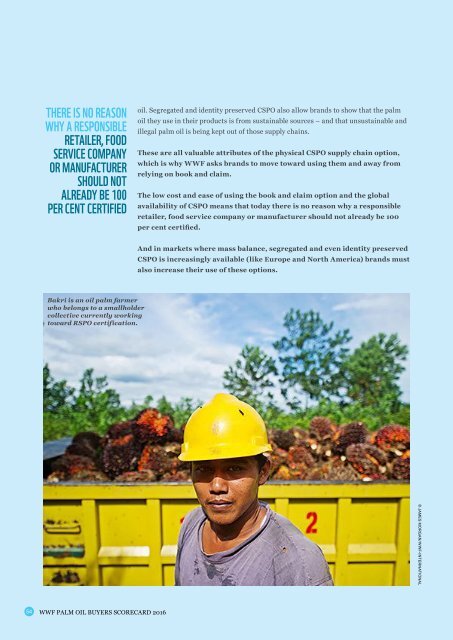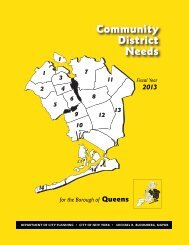Palm Oil Buyers Scorecard
WWF_Palm_Oil_Scorecard_2016
WWF_Palm_Oil_Scorecard_2016
You also want an ePaper? Increase the reach of your titles
YUMPU automatically turns print PDFs into web optimized ePapers that Google loves.
THERE IS NO REASON<br />
WHY A RESPONSIBLE<br />
RETAILER, FOOD<br />
SERVICE COMPANY<br />
OR MANUFACTURER<br />
SHOULD NOT<br />
ALREADY BE 100<br />
PER CENT CERTIFIED<br />
oil. Segregated and identity preserved CSPO also allow brands to show that the palm<br />
oil they use in their products is from sustainable sources – and that unsustainable and<br />
illegal palm oil is being kept out of those supply chains.<br />
These are all valuable attributes of the physical CSPO supply chain option,<br />
which is why WWF asks brands to move toward using them and away from<br />
relying on book and claim.<br />
The low cost and ease of using the book and claim option and the global<br />
availability of CSPO means that today there is no reason why a responsible<br />
retailer, food service company or manufacturer should not already be 100<br />
per cent certified.<br />
And in markets where mass balance, segregated and even identity preserved<br />
CSPO is increasingly available (like Europe and North America) brands must<br />
also increase their use of these options.<br />
Bakri is an oil palm farmer<br />
who belongs to a smallholder<br />
collective currently working<br />
toward RSPO certification.<br />
© JAMES MORGAN/WWF-INTERNATIONAL<br />
54 WWF PALM OIL BUYERS SCORECARD 2016




